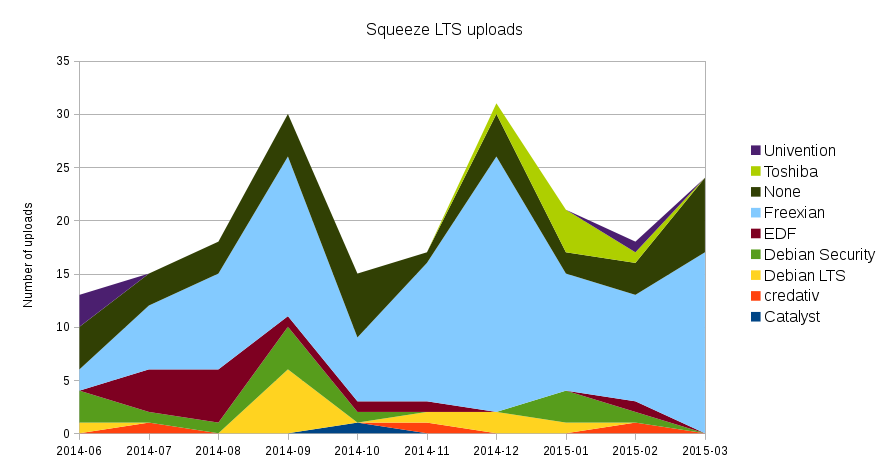Raphael Geissert: Updates to the sources.debian.net editor
Debconf is a great opportunity to meet people in real life, to express and share ideas in a different way, and to work on all sort of stuff.
I therefore spent some time to finish a couple of features in the editor for sources.debian.net. Here are some of the changes:
Get it for chromium, and iceweasel.
If your browser performs automatic updates of the extensions (the default), you should soon be upgraded to version 0.1.0 or later, bringing all those changes to your browser.
Want to see more? multi-file editing? in-browser storage of the editing session? that and more can be done, so feel free to join me and contribute to the Debian sources online editor!
I therefore spent some time to finish a couple of features in the editor for sources.debian.net. Here are some of the changes:
- Compare the source file with that of another version of the package
- And in order to present that: tabs! editor tabs!
- at the same time: generated diffs are now presented in a new editor tab, from where you can download it or email it
Get it for chromium, and iceweasel.
If your browser performs automatic updates of the extensions (the default), you should soon be upgraded to version 0.1.0 or later, bringing all those changes to your browser.
Want to see more? multi-file editing? in-browser storage of the editing session? that and more can be done, so feel free to join me and contribute to the Debian sources online editor!


 On Sunday I gave a talk about
On Sunday I gave a talk about 
 what constantly fascinates me in debian is that people sit at home, have an
idea, work on it, & then suddenly present it to an unexpecting public;
all without prior announcements or discussions, & totally apart from any
hot discussion-de-jour. the last example I encountered & tried out just
now is the option to
what constantly fascinates me in debian is that people sit at home, have an
idea, work on it, & then suddenly present it to an unexpecting public;
all without prior announcements or discussions, & totally apart from any
hot discussion-de-jour. the last example I encountered & tried out just
now is the option to 

 Debian LTS - feedback about the feedback from my LTS talk at DebConf14
So, I'm more or less back from dc14 and today, five days later, I think I might have mostly overcome jetlag. Probably...
So, at DebConf14 I gave a
Debian LTS - feedback about the feedback from my LTS talk at DebConf14
So, I'm more or less back from dc14 and today, five days later, I think I might have mostly overcome jetlag. Probably...
So, at DebConf14 I gave a  Oh, and surely there are other places than just the security-tracker which will need to be taught about this.
Oh, and surely there are other places than just the security-tracker which will need to be taught about this.